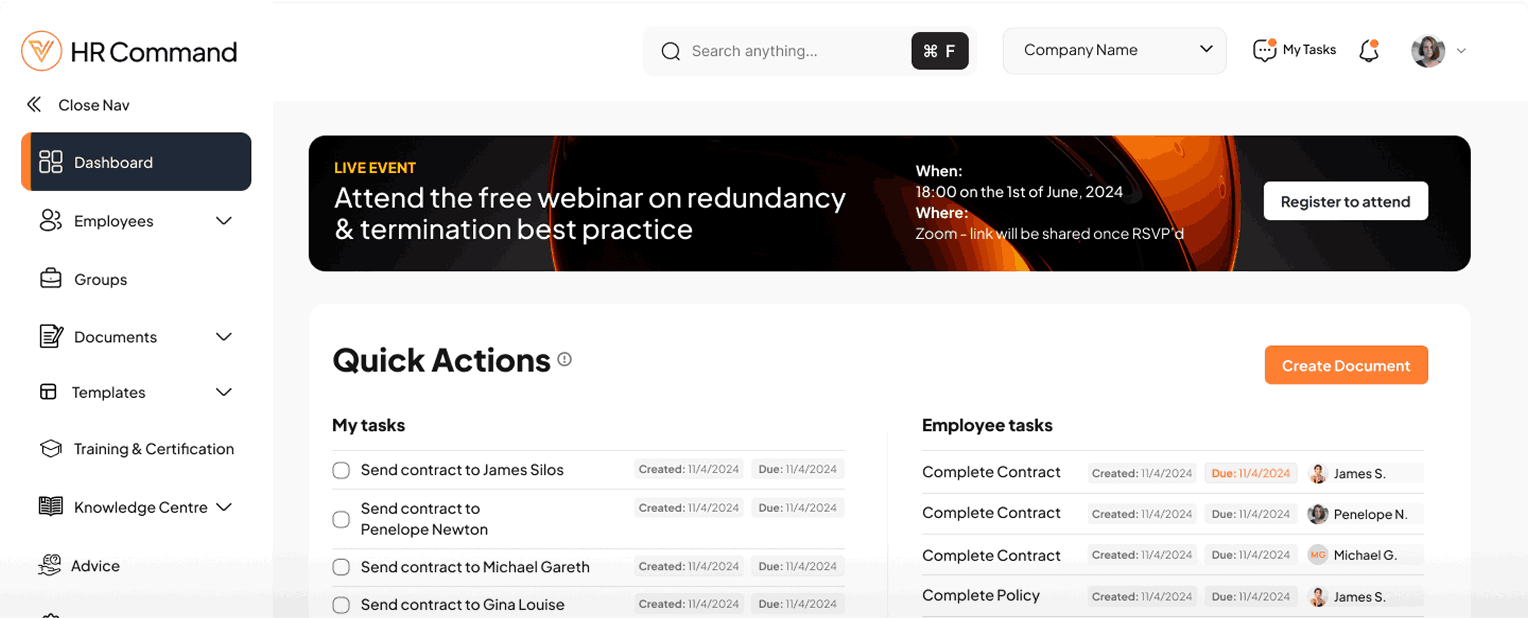In today’s complex business environment, Australian employers face the critical challenge of correctly classifying their workforce. Misclassification can result in significant legal penalties, back-pay obligations, and reputational damage. This comprehensive guide will help you navigate the intricacies of worker classifications, ensuring compliance whilst building a diverse and effective workforce.
Traditional Employment Categories
The foundation of Australian workplace relations rests on several well-defined employment categories. Each category carries specific rights, obligations, and characteristics that employers must understand to maintain compliance and create fair working environments. Here’s a detailed look at each classification:
Permanent Employees
Permanent employees represent the most stable and traditional form of employment in Australia. These workers form the core of most businesses, providing continuity and stability whilst enjoying the fullest range of employment protections and benefits under Australian law. They are characterised by:
- Ongoing employment security
- Consistent working hours
- Full benefits including paid leave
- Superannuation contributions
- Fair Work Act protections
- Termination notice rights
Casual Workers
Casual employment provides businesses with workforce flexibility whilst offering workers higher compensation rates in lieu of permanent benefits. This arrangement suits industries with fluctuating demand and workers seeking variable schedules. Key features include:
- No guaranteed hours
- Higher hourly rates (including casual loading)
- On-demand work arrangements
- Limited advance scheduling commitments
Fixed-Term Staff
Fixed-term employment offers a middle ground between permanent and casual arrangements, providing stability for specific projects or time periods whilst maintaining clear end dates. These positions are ideal for project-based work, parental leave coverage, or seasonal operations. They include:
- Clear start and end dates
- Full employee benefits during the contract
- Automatic termination at contract conclusion
- Similar rights to permanent staff whilst employed
Development Pathways
Professional development pathways combine employment with structured learning, creating opportunities for skill development whilst contributing to the workforce. These programmes are crucial for building Australia’s skilled workforce and providing career entry points for new workers.
Apprenticeships
Apprenticeships form the backbone of Australia’s skilled trades workforce development. These comprehensive programmes combine practical work experience with formal education, ensuring the continuation of crucial trade skills whilst providing clear career pathways for participants. They involve:
- 3-4 year commitment
- Hands-on training under qualified professionals
- Formal trade qualification upon completion
- Regulated pay scales and conditions
- Industry-specific work requirements
Traineeships
Traineeships provide a structured pathway into non-trade professions, offering a blend of practical experience and formal education. These programmes help bridge the gap between education and employment whilst meeting industry-specific workforce needs. They feature:
- Shorter duration than apprenticeships
- Focus on non-trade industries
- Combination of work and study
- Minimum wage guarantees
- Formal qualification opportunities
- Registration requirements with Australian Apprenticeship Centres
Key differences between apprenticeships and traineeships:
- Duration (apprenticeships generally longer)
- Industry focus (trades vs. non-trades)
- Training intensity
- Wage structures
Non-Traditional Workers
The modern workforce includes several non-traditional working arrangements that offer flexibility and opportunity whilst requiring careful management to ensure compliance and fairness. Understanding these categories is crucial for organisations seeking to diversify their workforce engagement strategies.
Volunteers
Volunteering plays a vital role in Australian society, particularly in the non-profit and community sectors. However, strict guidelines govern volunteer relationships to prevent exploitation and ensure genuine voluntary engagement. True volunteering must be:
- Genuinely unpaid
- Freely offered
- Not replacing paid positions
- Usually within non-profit or community organisations
Unpaid Interns
Internships serve as valuable learning experiences when properly structured, but must be carefully managed to avoid crossing into employment territory. A legitimate internship programme focuses on education rather than productive work. These positions should:
- Focus primarily on learning
- Benefit the intern’s development
- Not substitute for paid work
- Provide genuine skill development
Independent Contractors
Independent contracting represents a significant segment of the Australian workforce, offering flexibility and specialisation whilst requiring careful classification to avoid legal risks. True contractors operate as business entities rather than employees, with characteristics including:
- Self-directed work methods
- Own equipment and tools
- Personal responsibility for tax and super
- Business-to-business relationship
Legal Compliance Alert
The legal landscape surrounding worker classification continues to evolve, with courts increasingly scrutinising working arrangements to ensure proper classification. Recent decisions highlight the importance of substance over form in determining employment status.
Misclassification risks are significant, particularly regarding:
- Contractor relationships
- Unpaid internships
- Volunteer positions
Recent legal precedent (Construction, Forestry, Maritime, Mining and Energy Union v Personnel Contracting Pty Ltd [2022]) emphasises the importance of correct worker classification, with courts focusing on actual working relationships rather than documented agreements.
Best Practices for Classification
Proper classification requires careful consideration of multiple factors and regular review of working arrangements. Organisations should develop robust processes for determining and maintaining appropriate worker classifications.
When determining worker status, consider:
- Level of control over work
- Equipment ownership
- Payment structures
- Integration with regular operations
- Ability to work for others
- Risk and profit potential
Looking Ahead
The future of work continues to evolve, bringing new challenges and opportunities in worker classification. Organisations must stay informed about legal developments whilst maintaining flexible, compliant workforce arrangements.
Proper worker classification is fundamental to:
- Legal compliance
- Fair treatment
- Risk management
- Workforce stability
- Operational efficiency
Organisations should regularly review their workforce classifications and ensure appropriate onboarding processes for each category to maintain compliance and protect both the business and its workers. As the employment landscape continues to evolve, staying informed and adaptable whilst maintaining strict compliance will be key to successful workforce management.










